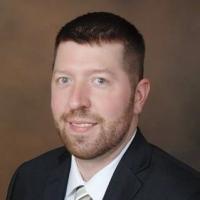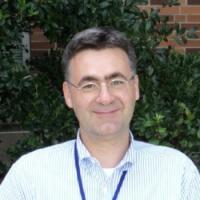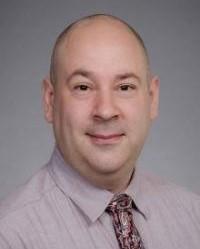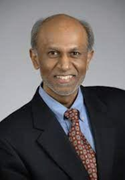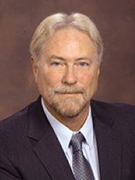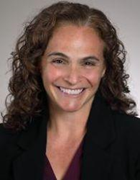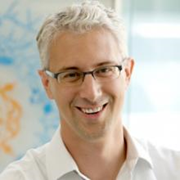The Mind’s Map Maker
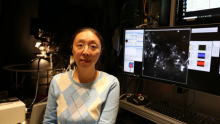
Yi Gu, Ph.D. is the head of the Spatial Navigation and Memory Unit. Dr. Gu has made several contributions to our knowledge of how neurons in the MEC help us find our way through the world. One study published in early 2024, for instance, examined how neurons in the MEC behave in mice that quickly learned the layout of virtual environments compared to mice that did not.
Dr. Gu’s lab is now replicating this research with mouse models of Alzheimer’s disease; however, her experiments in this area have only just begun, and will be augmented by continued research with healthy animals, including studies looking into how neurons in the MEC alter their production of proteins while animals learn to navigate new environments.
“It’s like using your own brain to understand your brain — it seems impossible,” she says. “It’s the complexity, I think, that attracts me because there is a lot that is unknown, and there are a lot more opportunities for discovery.”
To read more about Dr. Gu’s pioneering work, click here.
Congratulations Dr. Nath – Winner of the Ted Burns Humanism in Neurology Award
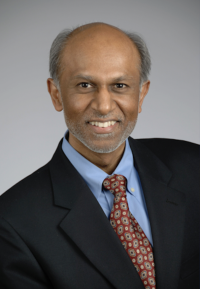
The Ted Burns Humanism in Neurology Award, sponsored by the American Brain Foundation, seeks to acknowledge the influence of the most benevolent and innovative in our field, who through their work, advance the field of neurology and make knowledge more accessible through their innovative teaching.
It is with great pleasure to announce that Dr. Avindra Nath, NINDS Clinical Director, has been selected as the 2024 recipient of this prestigious award in recognition of his commitment to humanism in the field of neurology. Additionally, Dr. Stacey Clardy, host of the Neurology Minute podcast, has invited Dr. Nath to join her for an upcoming episode.
About Dr. Nath
Dr. Nath received his M.D. degree from Christian Medical College in India in 1981 and completed a residency in Neurology from University of Texas Health Science Center in Houston, followed by a fellowship in Multiple Sclerosis and Neurovirology at the same institution and then a fellowship in Neuro-AIDS at NINDS. He held faculty positions at the University of Manitoba (1990-97) and the University of Kentucky (1997-02). In 2002, he joined Johns Hopkins University as Professor of Neurology and Director of the Division of Neuroimmunology and Neurological Infections. He joined NIH in 2011 as the Clinical Director of NINDS, the Director of the Translational Neuroscience Center, and Chief of the Section of Infections of the Nervous System. His research focuses on understanding the pathophysiology of retroviral infections of the nervous system, and the development of new diagnostic and therapeutic approaches for these diseases.
Drs. Sidransky and Singleton Win Breakthrough Prize
Founded in 2013 by a group that includes Google co-founder Sergey Brin, Facebook CEO Mark Zuckerberg, and 23andMe CEO Anne Wojcicki, the Breakthrough Prize in Life Sciences acknowledges “transformative advances toward understanding living systems and extending human life.” Commonly considered to be Silicon Valley’s answer to the Nobel Prize, the award comes with a $3 million prize.
NINDS joins the celebration of NIH colleagues and frequent collaborators, Dr. Ellen Sidransky, Chief and Senior Investigator, Medical Genetics Branch, National Human Genome Research Institute, Dr. Andrew Singleton, Director of the Center for Alzheimer's and Related Dementias and Chief, National Institute on Aging, along with Dr. Thomas Gasser, Hertie Institute for Clinical Brain Research, University of Tübingen and German Center for Neurodegenerative Diseases, won the Breakthrough Prize in Life Sciences for discvering the most common genetic causes of Parkinson’s Disease.
Sidransky identified mutations to the gene GBA1, which encodes an enzyme that breaks down fatty substances in cells, as a genetic risk factor for Parkinson’s; while Singleton and Gasser independently showed that mutations in the LRRK2 gene result in increased activity of a protein believed to contribute to neuronal damage in the disease. These discoveries offer clues to the mechanisms that cause the disease, pointing to the role of the lysosome, the cellular organelle that degrades and recycles cellular components.
Dr. Zaghloul Appointed SNB Chief
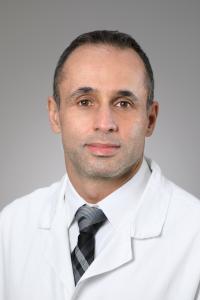
The NINDS congratulates Dr. Kareem Zaghloul as the NINDS’ newly appointed Chief of the Surgical Neurology Branch (SNB)!
Kareem was appointed after an extensive national search, and we are very fortunate to have such an outstanding scientist, surgeon, and visionary leading the SNB. NINDS also thanks Kareem for serving as acting SNB Chief from 2021-2023—a period of multiple challenges, including the COVID-19 pandemic. He served spectacularly in this role, ensuring the highest level of support for SNB faculty, staff, and patients.
We have complete confidence that Dr. Zaghloul will achieve his long-term goal for the SNB – to be among the world’s premier programs for academic neurosurgery and for human neuroscience research. The NIH community could not ask for a better, more capable person to see this vision for the neurosurgery program become reality.
Congratulations Dr. Sheng and Mr. Sharer — NIH Director’s Awards Recipients
Dr. Avindra Nath Awarded Secretary's Commendation for COVID-19 and WFN Medal for Scientific Achievement in Neurology
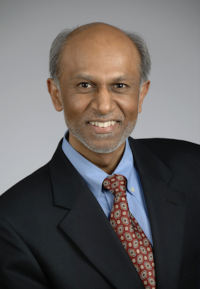
We have the privilege to announce that Dr. Avindra Nath, NINDS Clinical Director, was awarded the Secretary's Commendation for COVID-19 for his exceptional service and leadership during the Public Health Emergency phase of the COVID-19 Pandemic. Dr. Nath’s efforts and sacrifices over the past several years have been nothing short of heroic, and HHS Leadership is grateful for all that he has done for the Department and the Nation. Dr. Nath was recognized in an award ceremony that took place on Tuesday, August 22, in the Great Hall of the Hubert H. Humphrey Building. This memorable event was hosted with the Secretary, Deputy Secretary, and division heads.
Furthermore, tt is with great pleasure to announce that the WFN Trustees unanimously awarded Dr. Nath the WFN medal for Scientific Achievement in Neurology, which will be presented at this year’s World Congress of Neurology in Montreal. The World Federation of Neurology (WFN) was formed in Brussels in 1957, as an association of neurological member societies. The mission of the WFN is to foster quality neurology and brain health worldwide by promoting global neurological education and training with the emphasis placed firmly on under-resourced parts of the world. Today the Federation represents 123 professional societies in all regions of the world.
Read About Dr. Bonnemann’s and Dr. Cimino’s Exceptional Work
Announcing New NINDS Scientific Director – Jeffrey Diamond, Ph.D.
By Walter J. Koroshetz, M.D.
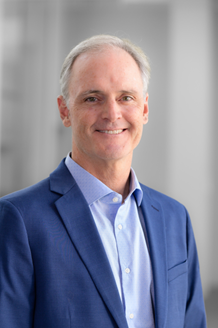
It is with great pleasure that I announce Jeffrey S. Diamond, Ph.D., as Scientific Director after an extensive search to fill the role. Jeff is a NINDS Senior Investigator and has served as the institute’s Acting Scientific Director since August 2022. His laboratory, within the NINDS synaptic physiology section, seeks to understand how neural circuits receive, compute, encode and transmit information.
I am convinced Jeff will build on NINDS’ critical efforts to create a highly productive and inclusive research community. I am also confident that Jeff’s curiosity, collaborative leadership style, and commitment to listen and learn from the experiences and insights of the talented staff around him, at all levels, ensure he will be a fantastic Scientific Director.
Jeff has been part of NINDS for over twenty years. His deep familiarity with the intramural program positions him well to build on our program’s incredible strengths, including its exceptional research and outstanding faculty, students, post-doc fellows and staff. His detailed knowledge of the IRP also enables him to address challenges within the program effectively, such as enhancing equity across all aspects of the IRP, creating opportunities for sharing new ideas, connecting as a community, encouraging collaboration, and insisting everyone communicate respectfully.
During his time at NINDS, Jeff has actively worked to build community. He initiated two interest groups, both of which are ongoing, and has served as mentor for numerous investigators, staff, fellows, and trainees. His deep commitment to NINDS is also evident from his extensive service to the institute, including serving on the NIH Ox-Cam Graduate Program Executive Committee, and representing NINDS on the Porter Neuroscience Steering Committee. He was instrumental in creating and nurturing our Ramón y Cajal exhibit in the Porter Neuroscience Center During the catastrophic flooding in December and its aftermath, Jeff, as Acting Scientific Director, advocated tirelessly for NINDS fellows, trainees, staff, and investigators. The flood was certainly a monumental challenge for all. And unfortunately the outlook for the NIH budget over the next two years will likely present other challenges that we will manage to get through together and prosper under Jeff’s able leadership.
As a scientist, Jeff’s work is highly innovative, combining numerous techniques to address high risk/high reward questions and is highly respected as a mentor. He has earned numerous awards and honors, including the Presidential Early Career Award in Science and Engineering, and the Brian Boycott Prize, a career achievement award in retinal neurobiology.
Jeff received a B.S. from Duke University and a Ph.D. from the University of California, San Francisco, where he studied excitatory synaptic transmission in the retina with David Copenhagen. During a postdoctoral fellowship with Craig Jahr at the Vollum Institute, he investigated the effects of glutamate transporters on excitatory synaptic transmission in the hippocampus. Jeff joined NINDS as an investigator in 1999 and was promoted to Senior Investigator in 2007.
Jeff’s vision for the intramural program is one of lively neighborhoods of scientific interest, where investigators capitalize on complementary skills and interests. He is committed to partnering with NINDS clinical director, Dr. Avi Nath, in sustaining a vibrant clinical neurosciences program while cultivating an inclusive community for all staff, fellows, and trainees, and to being open and transparent in his leadership as he guides the NINDS intramural program through the dynamic challenges of the future.
At this time, I must offer my deepest appreciation to Drs. Role, Schor and Koretsky for their service in the Office of the Scientific Director and Dr. Landis for over two decades of nurturing our IRP. I also wish to thank all those who provided thoughtful feedback during the search process and to Dr. Lisa Cunningham and her search committee.
NINDS will host a Town Hall in the coming months with Dr. Diamond so he can share his vision with the community and answer questions.
Please join me in welcoming Jeff as he leads the NINDS intramural scientific community into the next decade of basic and clinical discovery.
Dr. Ralph Nelson Appointed Scientist Emeritus
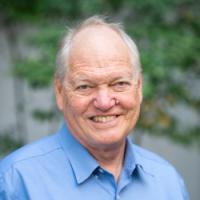
We are excited to announce that Ralph Nelson, Ph.D. has been appointed Scientist Emeritus. As the former Chief of the Neural Circuits Unit, Dr. Nelson had been an NIH Principal Investigator since 1978; he joined NINDS in 1983 when it was then known as the National Institute of Neurological and Communicative Disorders and Stroke (NINCDS). Early in his career at NIH,
Dr. Nelson was one of the first in the world to master intracellular recordings in the mammalian retina. Later, his work shifted to the molecules, cells and circuitry in the zebrafish retina, with a particular focus on color vision, which is even more complex in the fish retina. Though he has now retired, we are grateful he will continue to contribute toward research at NINDS as an emeritus.
Dr. Shahriar SheikhBahaei Received ISN Emerging Group Leaders Award
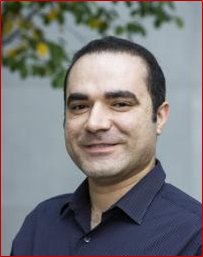
The International Society for Neurochemistry (ISN) is a nonprofit membership organization, and the first and only global society focused on neurochemistry. With a proud history dating back to its establishment in 1965, ISN strives to promote all relevant aspects of molecular and cellular neuroscience, connecting people around the globe and across specialties.
We are delighted to announce that Shahriar SheikhBahaei, Ph.D. received the ISN Emerging Group Leaders Award to attend and present at the 2023 ISN Emerging Group Leaders Symposia, which takes place in Porto, Portugal, August 10-13, 2023. An Independent Research Scholar, Dr. SheikhBahaei leads the Neuron-Glia Signaling and Circuits Unit at NINDS, and his laboratory is studying the cellular and circuit mechanisms underlying motor control disorders. Indeed, this will be a memorable experience and we wish Dr. SheikhBahaei the very best.
U01 Award from the Brain Initiative
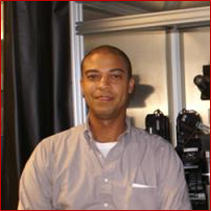
Exciting news, Dr. Zayd Khaliq’s lab, the Cellular Neurophysiology Section, and researchers at the Allen Institute have recently won a U01 grant from the Brain Initiative to improve experimental techniques that link large-scale connectomics datasets with multimodally-defined cell types. The proposal focuses on developing better approaches to acquire electrophysiological properties, single cell transcriptomics (patchseq) and morphological and circuit characteristics used to define cell-types functionally and biochemically.
Using the methodological innervations generated from the proposal, the Khaliq lab will generate a testbed dataset that will define cell-types within the basal ganglia that innervate different midbrain dopaminergic neuron subpopulations. The experiments described in this proposal will add to our knowledge of the cell types innervating vulnerable and resilient dopaminergic neurons subpopulations in Parkinson’s Disease and may provide insight into their selective vulnerability and resulting motor dysfunction.
Congratulations Dr. Roche
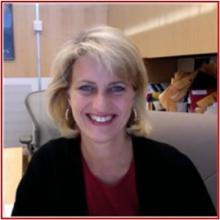
Please join your colleagues in congratulating Dr. Katherine Roche, NINDS Senior Investigator, on her recent election as Secretary in the Society for Neuroscience (SfN). This result reflects widespread recognition of and appreciation for Dr. Roche’s leadership efforts on behalf of the neuroscience community and SfN in particular. Dr. Roche will be joining Dr. John H. Morrison as incoming president-elect, Cheryl L. Sisk as incoming treasurer-elect, and Drs. Yukiko Goda and Raúl G. Paredes as elected councilors. SfN exists to: (1) advance scientific exchange; (2) support the neuroscience community; (3) educate and engage the public; and (4) advocate for the field. Founded in 1969, SfN now has nearly 35,000 members in more than 95 countries.
Year-round programming includes the publishing of two highly regarded scientific journals JNeurosci and eNeuro; professional development resources and career training through Neuronline¸ the Society’s home for learning and discussion; science advocacy and public policy engagement including annual Capitol Hill Day; and a variety of engaging public outreach efforts, led by the expanding and interactive collection of public-facing resources on BrainFacts.org.
Dr. Michael Ward Promoted to Senior Investigator with Tenure
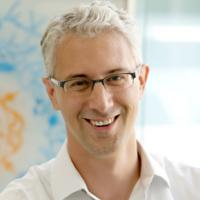
We are very proud to announce that Michael Ward, M.D., Ph.D., was promoted to Senior Investigator with Tenure at NINDS. Dr. Ward is a physician-scientist who leads a rigorous, creative, innovative, and highly productive research program focused on understanding the mechanistic underpinnings of neurodegeneration in frontotemporal dementia (FTD) and amyotrophic lateral sclerosis (ALS) using cell biological, proteomic, and functional genomic approaches in human induced pluripotent stem cells (iPSCs).
Dr. Ward is a rising leader in the field of neurodegeneration, having established a unique and highly productive niche. His work is innovative and on the cutting edge. The quality and range of his investigations are exceptional, with impacts in basic cell biology and neuroscience, as well as neurodegeneration translational research. Furthermore, Dr. Ward has a clear, broad, and well-articulated scientific vision that requires multidisciplinary collaboration, and he has therefore strategically recruited collaborators internationally who are world leader experts in complementary fields and techniques needed to bring that vision to reality.
Dr. Richard Youle Honored by American Academy of Arts and Sciences
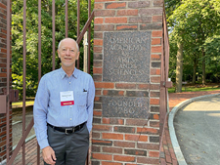
Dr. Youle, Chief of the Biochemistry Section, was recently honored with election into the American Academy of Arts and Sciences. This career milestone recognizes extraordinary people who help solve the world’s most urgent challenges, create meaning through art and contribute to the common good from every field, discipline and profession. Most recently, Dr. Youle and his colleagues discovered functions and interrelationships among proteins mutated in familial Parkinson’s disease. Their research suggests that the mutations may be linked to a breakdown in the way brain cells dispose of damaged mitochondria in a process called mitophagy. The results have led to a better understanding of the role genes play in the healthy and diseased brain and have opened new avenues for therapy. “This honor and the fun induction ceremony are highlights of my career that I will always cherish,” said Youle. Read more.
Archive
Dr. Sonja Scholz elected to the American Society for Clinical Investigation (ASCI)
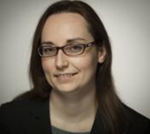
Dr. Sonja Scholz, Lasker Clinical Research Scholar and Chief of the Neurodegenerative Diseases Research Unit, has been acknowledged for her scientific contributions with election into the American Society for Clinical Investigation (ASCI). The election demonstrates recognition from an esteemed group of peers for her continued efforts in advancing the molecular understanding of neurodegenerative diseases. We congratulate Dr. Scholz on this milestone in her impressive career. New members will be inducted at a ceremony this coming April.
Dr. David Sibley elected for the Ruffalo Career Achievement Award in Pharmacology
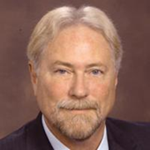
Join us in congratulating Dr. David Sibley, Chief of the Molecular Neuropharmacology Section, who was recently selected for the Ruffalo Career Achievement Award in Pharmacology. The award, presented by The American Society for Pharmacology and Experimental Therapeutics (ASPET), recognizes the scientific achievements of scientists who are at the height of their careers and who have made significant contributions to any area of pharmacology. Dr. Sibley is receiving the award in recognition of his seminal contributions to understanding G protein-coupled receptors, especially the pharmacology, signaling and regulation of dopamine receptors. The award will be presented at the annual ASPET meeting on May 21, 2023.
Dr. Lauren Reoma Appointed NINDS Deputy Clinical Director
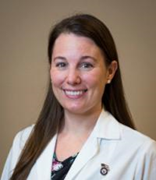
We are delighted to announce the appointment of Dr. Lauren Reoma as the Deputy Clinical Director of NINDS. Dr. Reoma received her medical degree from the University of Florida in May 2011 and completed her neurology residency at the same institution. She was a Clinical Fellow in the NINDS Neuroimmunology and Neurovirology Program from 2015 to 2019, where she completed additional training in Clinical Trials Methodology and the FDA Clinical Investigator Training.
Following this, Dr. Reoma was appointed as the Director of the Clinical Trials Unit. She currently serves on the NIH Institutional Review Board, the NIH Institutional Biosafety Committee, NIH Sterile Products for Human Administration Committee, the AIDS Clinical Trials Group (Neuro CSG), the ASENT Program Committee, and is the Vice Chair of the American Academy of Neurology Experimental Neurotherapeutics Section. She is also the intramural site director the NINDS-FDA/Neurology-Clinical Trial Methodology and Regulatory Science Fellowship. Her research has focused on conducting clinical trials in HIV infected patients, optimizing novel clinical trials methodology, improving trial regulatory performance, and targeting quality improvement research in early phase neurology clinical trials. Dr. Reoma will continue in her current role as the Director of the Clinical Trials Unit.
Dr. Antonina Roll-Mecak – 2022 NIH Director’s Challenge Awards Recipient
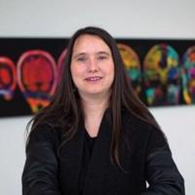
The NIH Director’s Challenge Awards program supports investigator-initiated, collaborative, and interdisciplinary projects that employ engineering and/or physical science approaches to problems in biology and medicine.
One of this year’s recipients is Dr. Antonina Roll-Mecak – a Senior Investigator and Chief of the Unit of Cell Biology at NINDS. Her innovative research, in collaboration with NIBIB, will focus on generating a complete single-molecule resolution 4D map of the tubulin code and its readers in the human neuron by developing methods for expansion microscopy coupled with single molecule imaging.
Ultimately, these novel methods will be broadly applicable to other structural problems that require nanoscale resolution and molecular contrast.
Congratulations Dr. Derek Narendra - Grass Foundation ANA Award in Neuroscience
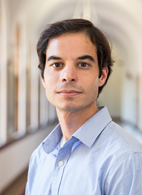
The Grass Foundation ANA Award in Neuroscience was established in 2007 to honor outstanding young investigators doing research in basic or clinical neuroscience. This year’s recipient is Dr. Derek Narendra — a Lasker Clinical Research Scholar and Investigator at NINDS and a Board-Certified neurologist — who has made exceptional contributions in the neurodegeneration field.
Dr. Narendra’s ground-breaking research demonstrated that the Parkinson’s Disease (PD) genes Parkin and PINK1 form a mitophagy pathway for mitochondrial quality control. This work established disrupted mitophagy as a mechanism of pathogenesis in PD and other neurodegenerative disorders, and is the basis of current drug discovery efforts to enhance the PINK1/Parkin mitophagy pathway.
A recipient of numerous awards, Dr. Narendra recently discovered that another mitochondrial quality control pathway protects against a separate set of neurogenetic disorders – those caused by misfolding of mutant CHCHD10 within mitochondria.
A round of applause to Dr. Narendra!
Muscular Dystrophy Association Recognizes Dr. Bönnemann
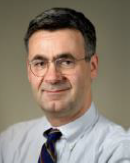
Dr. Carsten Bönnemann, Chief of the Neuromuscular and Neurogenetic Disorders of Childhood Section (NNDCS) in NINDS’s Intramural Neurogenetics Branch, recently received the first-ever Muscular Dystrophy Association (MDA) Legacy Award for Achievement in Clinical Research. The award, which recognizes outstanding accomplishments in neuromuscular disease research or care, was presented Mar. 14 at the opening ceremony of the 2022 MDA Clinical and Scientific Conference in Nashville.
Dr. Bönnemann’s current work focuses on identifying the genetic and cellular mechanisms of early-on-set muscle and nerve diseases in order to develop gene and transcript directed treatment strategies for them.
Dr. Bönnemann was honored for his contributions to the field of neuromuscular disease research including (but not limited to):
- Identifying genetic causes of limb girdle muscular dystrophies
- Clarifying molecular pathways and developing preclinical models for congenital muscular dystrophies
- Using next-generation genomic technologies for new gene discoveries in children with complex neuromuscular and neurogenetic conditions
- Establishing natural history and outcome measures for use in clinical trials for congenital myopathies
- Conducting the first intrathecal adeno-associated viral vector gene therapy trial for giant axonal neuropathy in humans
Congratulations Dr. Bönnemann for such an outstanding accomplishment!
NINDS Principal Investigator Spearheads the Power of an Inclusive Workplace Recognition Project

Dr. Sadhana Jackson – a pediatric neuro-oncologist at both the NINDS and National Cancer Institute, and co-chair of the UNITE “T” Committee – spearheaded the very successful Power of an Inclusive Workplace Recognition Project. The focus of the Project is to diversify the portraiture within NIH buildings and digital spaces; foster organizational change; and highlight inclusive excellence among underrepresented groups in administrative, scientific, and executive careers at the NIH.
To learn more about the Project, click here.
New Tenured Faculty
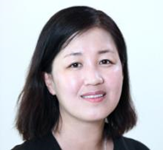
Dr. Quan Yuan has been officially appointed as a Senior Investigator. Dr. Yuan was recognized for conducting a thriving, thorough, thoughtful, and highly creative and rigorous research program that continues to provide novel insights into the principles and mechanisms of nervous system plasticity and its regulation by neural activity. The quality and impact of her scientific accomplishments as a Tenure-Track Investigator at NINDS have earned her an impeccable local, national, and international reputation.
Dr. Yuan is considered a leader in the field of developmental neuroscience and in the Drosophila neurobiology community. The depth and volume of her scholarship and clear research vision, along with her service contributions, enthusiastic and impactful mentoring, and standing in the community, all speak to the enormous value she has brought to NINDS, and will continue to bring as a Senior Investigator
New Scientist Emeritus
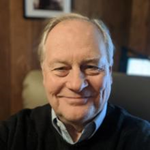
NINDS is also honored to announce Dr. Michael J O'Donovan has been named an NIH Scientist Emeritus. Dr. O’Donovan has a long and impressive career, having been appointed as the Chief of the NINDS Developmental Neurobiology Section in 1991. With a research focus on the organization of motor networks in the spinal cord, Dr. O’Donovan is internationally recognized as an innovator, collaborator, and scientist. His research led to the development of novel techniques for and approaches to studying the developing spinal cord. These techniques and approaches led to his and others’ discoveries of novel mechanisms that underlie spontaneous activity and development of motor control in developing mammals.
As an expert in his field, Dr. O’Donovan is frequently sought for invited talks and guest lectures. In addition to his research contributions, Dr. O’Donovan served on numerous NIH committees and is a highly regarded mentor to numerous research fellows. We are ever grateful for his contributions and are happy he will maintain an ongoing working relationship at NIH in his role as an emeritus.
Harvey J. Bullock, Jr. Director’s Award

Congratulations to Dr. Angel de la Cruz Landrau for being the 2021 Harvey J. Bullock, Jr. Director’s Award recipient! The citation is in recognition of his significant contributions toward promoting diversity, equity, and inclusion (DEI) at the NIH by developing and advocating for the inclusion of all under-represented groups in the neurosciences, specifically the Hispanic and LGBTQ communities. To further his knowledge and interest in DEI, Dr. Cruz completed a detail in the NIH Office of Intramural Training and Education to learn the specifics of training and outreach programs for under-represented communities, and to learn about policies surrounding DEI programs. Following that detail, he joined the NINDS Division of Extramural Research Programs to Enhance Neuroscience Workforce Diversity (OPEN) to learn strategies for outreach to the extramural community. His colleagues in intramural and the NINDS training office know firsthand his dedication and passion, a constant champion for DEI and helping trainees at every level.
Drs. Avi Nath and David Sibley Elected Members of the AAAS
Dr. Daniel Reich elected to AAP and the Henry Kunkel Society
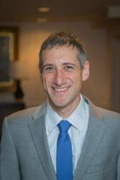
Dr. Daniel Reich was elected to both the Association of American Physicians and the Henry Kunkel Society. Each year, the Association of American Physicians, which was founded by William Osler in 1885, elects no more than 70 “physicians with outstanding credentials in basic or translational biomedical research.” Among the AAP’s goals is to establish “role models to kindle new generations of high achievers in medicine and medical science.” The Henry Kunkel Society, founded at Rockefeller University in 1990, aims “to foster the development of clinical investigators focused on hypothesis-driven, patient-oriented research, particularly in the field of immunology and related subjects.” Both memberships are prestigious acknowledgments of his accomplishments in the field.
Drs. Rebecca Gottesman and Michael Ward Elected Members to the ASCI
Dr. Reoma Vice Chair of the AAN Experimental Neurotherapeutics Section
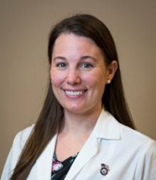
Dr. Lauren Reoma, Director of the CTU and Lead, Clinical Trials Compliance and Safety Oversight Office, has been elected as the Vice Chair of the American Academy of Neurology (AAN), Experimental Neurotherapeutics Section. The Experimental Neurotherapeutics Section has been established to serve the needs/interests of neurologists and other clinical neuroscientists who are interested in developing, evaluating and implementing new treatments for neurological diseases. This growing and important subspecialty of neurotherapeutics brings together neurologists in academia, private practice, government and industry to work with basic neuroscientists, pharmacists, pharmacologists, neurogeneticists, physical therapists, clinical trial coordinators, nurses and nurse practitioners, physician assistants and statisticians on the development and assessment of novel treatments, their subsequent regulatory approval, and their effective use in practice.
There are major issues and opportunities in experimental therapeutics that this section will be able to consider. The section should help to foster training and research as well as address important topics/areas: implementation science; global neurotherapeutics - - both access and disparities; U.S. neurotherapeutic disparities and inequities; clinical trial design and implementation; and drug development.
Dr. Michael Ward and the Arrest ALS Initiative
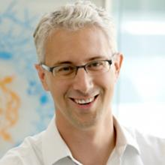
Dr. Michael Ward and Clotilde-Lagier-Tourenne (MGH) recently received a prestigious team-science grant from the “Arrest ALS Initiative”, which focuses on identifying ways to improve neuronal health and survival in amyotrophic lateral sclerosis. In a series of collaborative experiments, the Ward and Lagier-Tourenne labs will use high-throughput screening approaches in human iPSC neurons to identify genes and chemical compounds that improve expression of stathmin-2, a key microtubule regulating protein that is severely downregulated in patients with ALS.
Dr. Zayd Khaliq and Team Receive ASAP Award
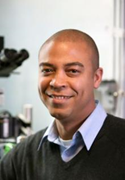
Dr. Zayd Khaliq, Head of the Cellular Neurophysiology Section, is part of a team of seven investigators that received funding from Aligning Science Across Parkinson’s (ASAP), a collaborative research initiative that brings scientists together from around the world to better understand the basic mechanisms of neurodegeneration and how they contribute to symptoms of Parkinson’s Disease (PD). The team’s research will focus on the function and neural circuit mechanisms of PD. Historically, research in PD has focused on how a normal brain protein, called synuclein, goes awry and accumulates in cells, including dopamine-releasing neurons. However, the role of brain activity in early PD is poorly understood and more information is needed to determine how activity interacts with synuclein to impair function and cause neurodegeneration.
Dr. Khaliq and his interdisciplinary team [KZ([1] will use a range of cutting-edge approaches in mouse models of PD to test where and how brain activity changes in early disease stages and how this might be remediated to prevent or slow disease progression. The team includes Robert Edwards (UCSF), Kira Poskanzer (UCSF), Ken Nakamura (Gladstone Institutes and UCSF), Alexandra Nelson (UCSF), Chris Ford (University of Colorado, Denver), and Glenda Halliday (University of Sydney). They will work across multiple experimental systems—including human brain tissue—to test the role of neural activity in PD.
Dr. Zu-Hang Sheng receives Dr. Francisco S. Sy Award
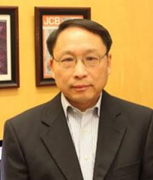
Dr. Zu-Hang Sheng has been selected to receive the 2021 Dr. Francisco S. Sy Award for Excellence in Mentorship at HHS. This award is in recognition of Dr. Sheng’s exceptional mentorship to others from the Asian American/Native Hawaiian/Pacific Islander (AANHPI) community, fostering their professional growth and career development. Established by the Federal Asian Pacific American Council (FAPAC), the award is named in honor of Dr. Francisco Santos Sy, who championed mentorship initiatives throughout his career at the NIH and CDC. Upon award notification, Dr. Sheng was quoted, “this is one of the most important highlights of my professional career at NIH and really a proud moment for me and my entire team – both former and current trainees – to accept this prestigious award. Mentoring and training the next generation of biomedical scientists is my most exciting career goal and would not be possible without the strong support of my Institute leadership team. I will always treasure this award and continue to do my best to support the mission of NIH and HHS.”
Dr. Avi Nath - ANA Soriano Lecturer

Dr. Avindra Nath, Clinical Director of NINDS, has been designated the 2021 Soriano Lecturer by the American Neurological Association.
The lectureship established in 1987 by ANA member Dr. Victor Soriano and his wife to acknowledge a “brilliant lecture delivered by an outstanding scientist” who is also a member of the Association. Dr. Nath will speak on the neurobiology of COVID-19.
Dr. Antonia Roll-Mecak - American Academy of Neurology Frontiers in Neuroscience
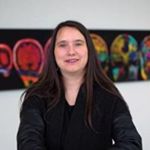
Dr. Antonina Roll-Mecak was a 2021 American Academy of Neurology Frontiers in Neuroscience Lecturer. Her talk focused on the roles of spastin and katanin, two enzymes, in the severing and repair of microtubules.
This process is of particular importance in the neuropathy associated with chemotherapeutic drugs and may play a role in neurodegenerative diseases
Dr. Richard Youle selected for the Breakthrough Prize in Life Sciences
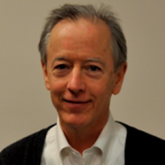
The Breakthrough Prize Foundation has announced the esteemed recipients of the 2021 Breakthrough Prize, recognizing a spectacular array of groundbreaking achievements in the Life Sciences, Fundamental Physics and Mathematics. Each year, the Prize is celebrated at a gala award ceremony, where the awards are presented by superstars of movies, music, sports and tech entrepreneurship. Due to the global pandemic, however, this year’s ceremony has been postponed until March 2021.
Dr. Youle is one of four investigators selected for the Breakthrough Prize in Life Sciences.


